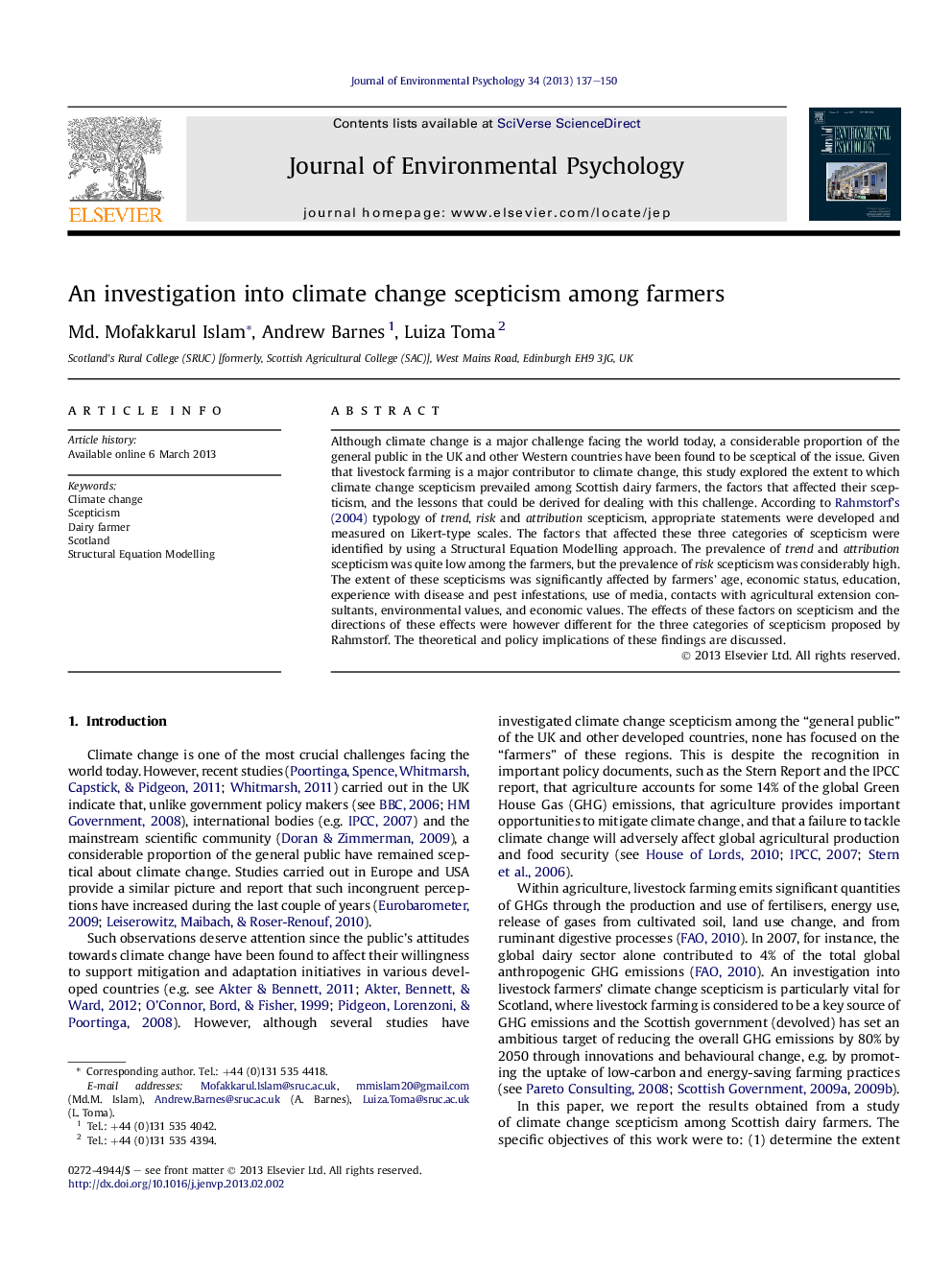| کد مقاله | کد نشریه | سال انتشار | مقاله انگلیسی | نسخه تمام متن |
|---|---|---|---|---|
| 885613 | 1471760 | 2013 | 14 صفحه PDF | دانلود رایگان |

Although climate change is a major challenge facing the world today, a considerable proportion of the general public in the UK and other Western countries have been found to be sceptical of the issue. Given that livestock farming is a major contributor to climate change, this study explored the extent to which climate change scepticism prevailed among Scottish dairy farmers, the factors that affected their scepticism, and the lessons that could be derived for dealing with this challenge. According to Rahmstorf's (2004) typology of trend, risk and attribution scepticism, appropriate statements were developed and measured on Likert-type scales. The factors that affected these three categories of scepticism were identified by using a Structural Equation Modelling approach. The prevalence of trend and attribution scepticism was quite low among the farmers, but the prevalence of risk scepticism was considerably high. The extent of these scepticisms was significantly affected by farmers' age, economic status, education, experience with disease and pest infestations, use of media, contacts with agricultural extension consultants, environmental values, and economic values. The effects of these factors on scepticism and the directions of these effects were however different for the three categories of scepticism proposed by Rahmstorf. The theoretical and policy implications of these findings are discussed.
► Climate change scepticism among 533 Scottish dairy farmers was investigated.
► Rahmstorf's (2004) typology of trend, impact (risk), and attribution scepticism was used.
► About 16% were trend sceptics, over 5–24% attribution sceptics, and over 17–54% risk sceptics.
► Demographics, direct experiences, use of information sources, and values affected scepticism.
► The effects of these variables were different for the three types of scepticism investigated.
Journal: Journal of Environmental Psychology - Volume 34, June 2013, Pages 137–150